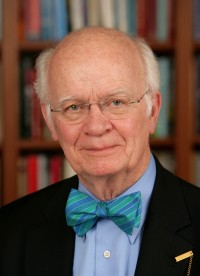Health-care conversion

David Heim recently highlighted
the article
in the June 9 issue of The New Republic
(subscribers only) by pioneer bioethicist Daniel Callahan and Sherwin B.
Nuland, author of How We Die.
According to Callahan and Nuland, our health-care system has for decades
"been waging an unrelenting war against disease," with dire effects
on the culture. But something can be done about it. Simply (!) it will take,
"to use a religious term in a secular way-something like a conversion
experience on the part of physicians, researchers, industry, and our nation as
a whole."
Religious professionals are not mentioned in the article,
but the phrase "conversion experience" will get their attention. They
ought to have something to say on the subject of a health-care system obsessed
with finding cures for lethal diseases, and some may be saying it. But their
voices on this subject tend to be muted, reflecting their sickroom- and
hospice-honed experience.
I left parish ministry 48 years ago, but I recall vividly
the training that went into pastoral care for those aged who were chronically
or terminally ill: you do talk about death, and about meeting it. You are
called to help people let go of this life and not to depend on hugely expensive
but, in the end, futile and fatal endeavors to "conquer" cancer and other
unconquerables through unaffordable investments.
The co-authors, both 80-year-olds who have been in the
forefront of ethical and medical concerns, have credentials to care, and they
use them. I know them both, and I know that they don't welcome pain and
suffering and do welcome much that medicine has to offer. Their register of
attempts to prolong life at the expense of burdened younger generations--on the
basis of questionable philosophical, religious and political premises--should inspire
the thoughtful to entertain the "conversion experience" they prescribe.
"In light of the fact that we are not curing most
disease," they argue,
We need to change our priorities
for the elderly. Death is not the only bad thing that can happen to an elderly
person. . . . Instead of a medical culture of cure for the elderly, they
stress, we need a culture of care, notably a stronger Social Security program
and a Medicare program much more heavily weighted toward primary care. . . .
Some people may die earlier than now, but they will die better deaths.
Medicine cannot continue serving two masters, Callahan and
Nuland write, "that of providing affordable health care and turning a handsome
profit for its middlemen and providers." They conclude that the necessary
changes "will take the confidence of the American people that a more humane,
more affordable kind of medicine is possible."
Could pastors, chaplains and counselors--who now whisper
counsel and prayers into the ears of the aged and ill--teach and preach this
humane message in full voice? Yes, they could.






